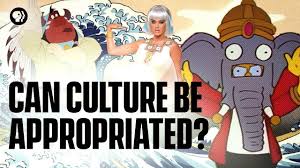What is the difference between cultural appreciation and appropriation? Appreciation is when someone seeks to understand and learn about another culture in an effort to broaden their perspective and connect with others cross-culturally. Appropriation on the other hand, is simply taking one aspect of a culture that is not your own and using it for your own personal interest.
What is an example of cultural appreciation? For example, appreciating and sharing the culture being celebrated by wearing culturally appropriate clothing at a celebrated event — as opposed to appropriation, such as going to a music festival wearing a costume the imitates a culture that is solely intended to get attention or likes on social media.
How do you appreciate a culture without appropriating it?
Start with these basic tips:
- Examine your own culture and beliefs. Knowing your own culture is one of the best ways to understand and appreciate other cultures.
- Recognize and embrace cultural differences.
- Refrain from using sacred artifacts or symbols from another culture as an accessory.
- Ask yourself why.
- Be an ally!
What defines cultural appreciation? Cultural appreciation is when you earnestly seek to learn about or explore a different culture. You learn. You listen. You strive to understand. You seek to honor its beliefs and traditions.
What is the difference between cultural appreciation and appropriation? – Additional Questions
What are the 4 types of cultural appropriation?
Defined as the use of a culture’s symbols, artifacts, genres, rituals, or technologies by members of another culture, cultural appropriation can be placed into 4 categories: exchange, dominance, exploitation, and transculturation.
What are at least two examples of cultural appreciation?
Cultural Appreciation & Respect
Examples would include learning martial arts from an instructor with an understanding of the practice from a cultural perspective or eating Indian food at an authentic Indian restaurant.
What counts as cultural appropriation?
Cultural appropriation takes place when members of a majority group adopt cultural elements of a minority group in an exploitative, disrespectful, or stereotypical way. To fully understand its consequences, though, we need to make sure we have a working definition of culture itself.
Why is cultural appreciation important to the world?
People who truly want to appreciate a culture offer respect to members of that culture and their traditions by participating only when invited to do so. Appreciation provides an opportunity to share ideas and cultural awareness.
Why do we need to appreciate our culture?
In addition to its intrinsic value, culture provides important social and economic benefits. With improved learning and health, increased tolerance, and opportunities to come together with others, culture enhances our quality of life and increases overall well-being for both individuals and communities.
What is cultural appreciation in fashion?
Cultural appreciation would be possible if designers could inform the public about the rich cultural history and significance attached to the clothing, designs, or patterns that they are taking inspiration from. This way, the original culture would receive the recognition and credit it deserves.
Is wearing sari cultural appropriation?
A sari is a traditional Indian dress. There is no religious background of this dress, and if somebody not from India wears a sari skirt, it doesn’t signify cultural appropriation. This means that the people of all backgrounds can wear sari skirts. Wearing a sari skirt is not cultural appropriation.
Is it cultural appropriation to wear clothes from another country?
It’s definitely more cultural appreciation. As long as we do it in a respectful way, I don’t see any problem with someone wearing clothes from a different culture. It’s not a bad way to start learning about other cultures and it could even help other people to learn more about that culture through you.
When did cultural appropriation become a thing?
The term “cultural appropriation” is coined by academics in the 1980s around conversations about Western colonialism and its effects on global cultures.
What is another word for cultural appropriation?
What is another word for cultural appropriation?
| cultural misappropriation |
cooptation |
| cooption |
cultural borrowing |
| assimilation |
race impersonation |
How do you address cultural appropriation?
To create more engaging, culturally relevant content while avoiding appropriation, Blackburn suggests these tips.
- Commit to cultural investments all year round.
- Bring diverse people and perspectives into the content creation process.
- Be conscientious and challenge the “why” behind your content.
- Embrace education.
What is another word for appropriation?
What is another word for appropriation?
| grant |
allocation |
| subvention |
allowance |
| annuity |
entitlement |
| donation |
funding |
| concession |
assignment |
What’s the opposite of appropriation?
What is the opposite of appropriation?
| relinquishment |
surrender |
| release |
renunciation |
| abdication |
resignation |
| rejection |
repudiation |
| handover |
yield |
What is the purpose of appropriation?
Appropriations tell us how money or capital is being allocated whether it’s through the federal government’s budget or a company’s use of cash and capital. Appropriations by governments are made for federal funds each year for various programs. Appropriations for companies may also be known as capital allocation.
What is self appropriation?
In his philosophical classic Insight, Catholic philosopher and theologian Bernard Lonergan introduced the concept of self-appropriation – the personal search for knowledge of the self, and through that of the world – as the basis for systematic philosophical investigation.
What is the meaning of appropriative?
Adjective. appropriative (comparative more appropriative, superlative most appropriative) Taking or setting apart for oneself; appropriating; constituting appropriation.
Which are the Constitution of the self?
Self-Constitution: Agency, Identity, and Integrity is a philosophical book by Christine Korsgaard, in which the author sets out to demonstrate how people determine their own actions. A dialogue with Kant, Aristotle, and Plato takes place throughout the book.
Self-Constitution.
| Author |
Christine Korsgaard |
| Pages |
230 |
| ISBN |
978-0-19-955280-1 |
